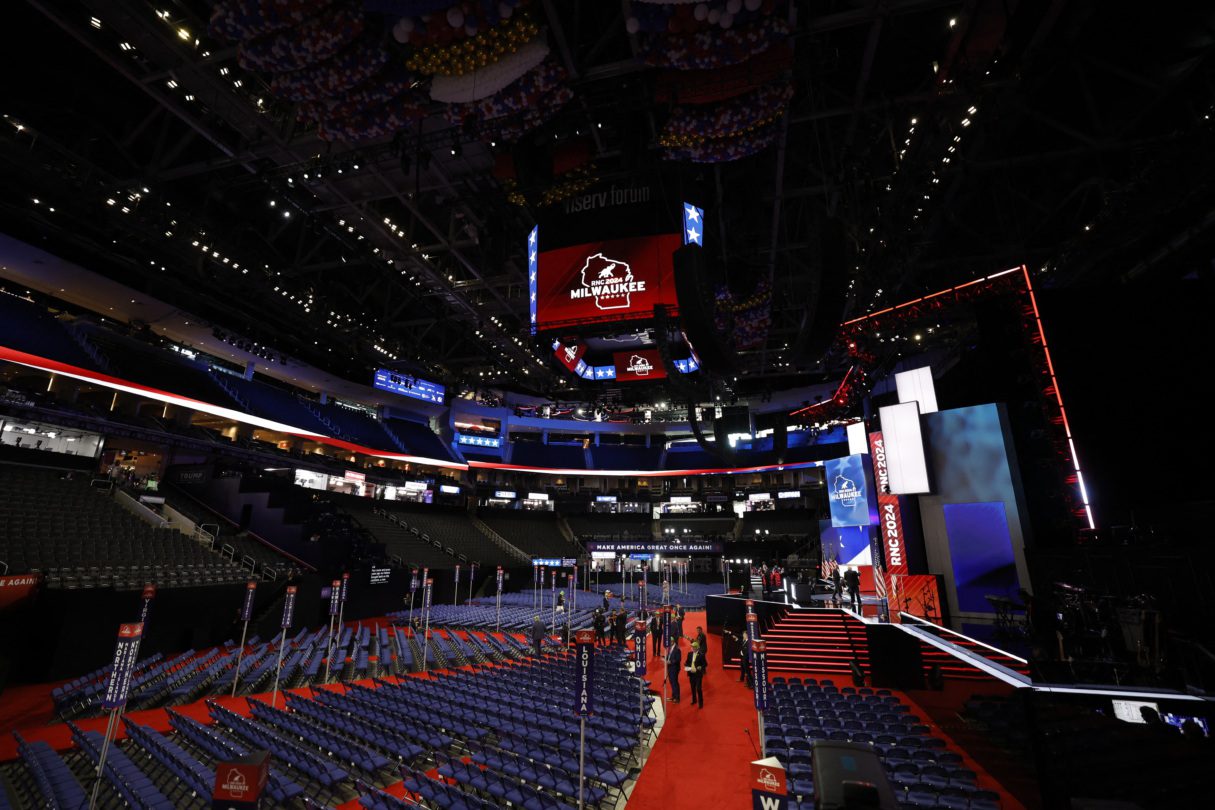Convention Tension
Plus: News from the Trump cases. 🗳️

Published July 19, 2024
The despicable shooting at a Trump rally in Pennsylvania last weekend was an attack on the former president and his supporters, but also an attack on our entire system of free and fair elections. Our democracy relies on making sure everyone is safe to participate.
Political violence and lies about elections share a goal. They both seek to destabilize our democracy—one with fear and force, the other with confusion and distrust. And they feed off each other. For years, conspiracy theories have increasingly led to violent threats against election officials.
So it’s concerning that, less than a week after the assassination attempt, the lies about our elections picked back up.
In his acceptance speech at the Republican National Convention, former President Trump began with a somber reflection on national unity and healing. But he quickly pivoted to recycled lies about the 2020 election and attacks on the rule of law. He claimed that attempts to hold him accountable are “weaponizing the justice system,” and that the only way to have “an election worthy of our people” is to drop all criminal charges against him.
But you can’t claim you’re the one “saving democracy for the people of our country” after you tried to overthrow a free and fair election. You can’t say Americans are “bound together by a single fate” and then demand to be placed above the law.
We settle political differences in this country with elections. We enforce the law through an impartial justice system that applies to everyone. Political violence seeks to undermine these principles. It’s more important than ever to stand up for them.
This Week in Democracy
- At the Republican National Convention, Donald Trump and U.S. Sen. J.D. Vance of Ohio accepted the party’s nominations for president and vice president. Divisive rhetoric and lies, including about the 2020 presidential election, made up the bulk of Trump’s 90-minute acceptance speech.
- A gunman shot at Trump last weekend at a campaign rally in Pennsylvania. Trump and two others were injured, and one attendee, Corey Comperatore, was killed. The attack was met with widespread condemnation. “All of us—from elected officials, to candidates, to voters, to election workers, to rally attendees—must be able to safely and freely participate in our democracy,” States United CEO Joanna Lydgate said in a statement.
➡️ READ: Full statement
- Judge Aileen Cannon dismissed the criminal case against Trump about his alleged mishandling of classified information. Justice Department Special Counsel Jack Smith, who brought the charges, signaled that he would appeal the decision.
- The Georgia Court of Appeals will hear arguments Dec. 5 about Trump and his co-defendants’ attempts to disqualify District Attorney Fani Willis, who is prosecuting the Georgia election interference case. The effort to throw out the charges against Trump and his co-defendants and disqualify Willis was denied by a lower court earlier this year.
➡️ READ: The Georgia charges, explained
State of the States
In Nevada, the Washoe County Commission canvassed and certified the results of two primary elections. After the state held primary elections on June 9, recounts were requested for two races. Each recount confirmed the initial results, but when it was time to make those results official, two commissioners initially refused to vote to do so. Nevada Attorney General Aaron Ford and Secretary of State Cisco Aguilar acted quickly, asking the Nevada Supreme Court to compel the commission to fulfill their duties and certify the results. Soon after, the commission scheduled a new meeting to vote again, where two of the members reversed course this past Tuesday and made the results official. “Our responsibility is to follow the law,” Commissioner Clara Andriola, one of the members who changed her vote, said on Tuesday.